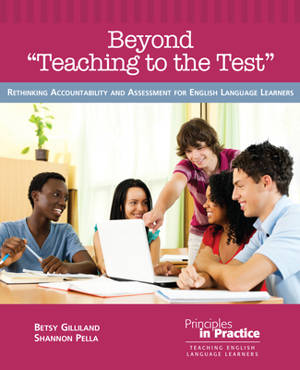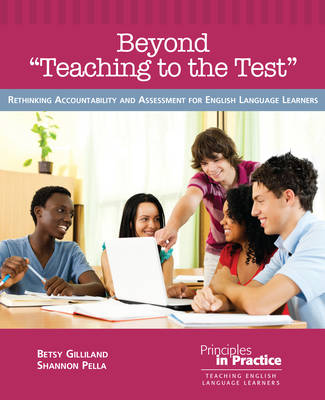
- Afhalen na 1 uur in een winkel met voorraad
- Gratis thuislevering in België vanaf € 30
- Ruim aanbod met 7 miljoen producten
- Afhalen na 1 uur in een winkel met voorraad
- Gratis thuislevering in België vanaf € 30
- Ruim aanbod met 7 miljoen producten
Beyond "teaching to the Test"
Rethinking Accountability and Assessment for English Language Learners
Betsy Gilliland, Shannon PellaOmschrijving
The word accountability is everywhere in education today, but it means different things to different people.
Speaking directly to teachers who work closely with English language learners, Betsy Gilliland and Shannon Pella examine essential questions in this age of accountability: What kind of accountability measures truly demonstrate multilingual students' learning? How do these measures reflect the planning and teaching that teachers do to help their students grow?
Gilliland and Pella take readers into the classrooms of middle and high school teachers to illustrate accountability practices that exemplify the principles outlined in the NCTE Position Paper on the Role of English Teachers in Educating English Language Learners (ELLs). What does accountability mean when teaching ELLs? In one sense, teacher support of student performance on standardized tests is accountability to grade-level standards. More important, however, teachers and schools are also accountable to the students through equitable access to the curriculum and real-world literacy.
This book gives teachers the background and strategies to make their teaching and support equitable for ELLs. Examining how teachers can support learners' reading, writing, and academic language development, and illustrated with examples of real teachers at work, the authors explain teaching for accountability, formative and summative assessment, and preparation for high-stakes testing, as well as provide suggestions for teaching, guiding questions for discussion, and resource recommendations.
Specificaties
Betrokkenen
- Auteur(s):
- Uitgeverij:
Inhoud
- Aantal bladzijden:
- 167
- Taal:
- Engels
- Reeks:
Eigenschappen
- Productcode (EAN):
- 9780814102947
- Verschijningsdatum:
- 16/06/2017
- Uitvoering:
- Paperback
- Formaat:
- Trade paperback (VS)
- Afmetingen:
- 229 mm x 188 mm
- Gewicht:
- 399 g

Alleen bij Standaard Boekhandel
Beoordelingen
We publiceren alleen reviews die voldoen aan de voorwaarden voor reviews. Bekijk onze voorwaarden voor reviews.











